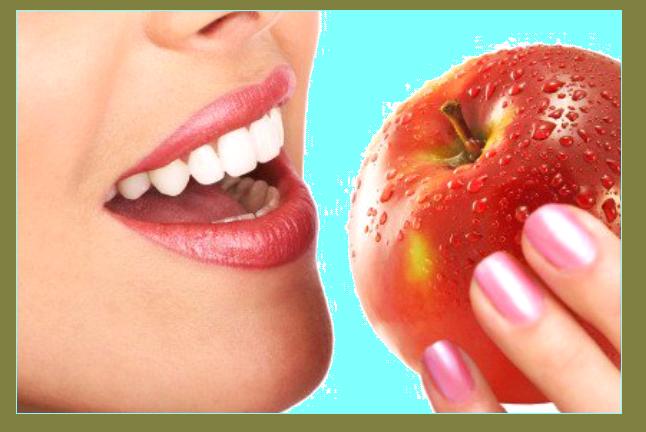Oral health plays a huge role in your overall well-being. Healthy teeth and gums make it easier to eat, speak, and feel confident. When your dental health suffers, it can affect more than your mouth. Your nutrition, comfort, and long-term health can all be affected.
Most people who visit a dentist in Livingston know that brushing and flossing protect their teeth. But few people think about how their daily food choices shape their dental health. Most people know sugar is bad for teeth. Less realize that their entire diet, what they eat, how often, and when, can influence their risk for tooth decay and gum disease.
In this post, we’ll look at the connection between diet and oral health. You’ll learn how what you eat affects your oral health, which nutrients support it, and how dental health issues can change the way you eat. You’ll also find practical tips to help you make food choices that protect your smile.
The Relationship Between Diet and Oral Health
The relationship between diet and dental health goes both ways. What you eat affects the health of your teeth and gums. At the same time, the condition of your mouth affects the foods you choose to eat.
Sugary, processed, and starchy foods fuel bacteria that cause cavities and gum disease. A poor diet increases the risk of tooth decay, gum inflammation, and tooth loss. It also limits the body’s ability to fight infection and repair damaged tissues.
Oral health problems, like missing teeth or gum pain, make it harder to eat certain foods. Many people with dental issues avoid fruits, vegetables, and lean proteins because they’re hard to chew. Instead, they may turn to soft, processed foods that don’t have as many nutrients.
This creates a cycle. A poor diet increases the risk of oral disease, and oral disease can make it harder to maintain a healthy diet. Breaking the cycle starts with better food choices and regular dental care.
Nutrients That Support Dental Health
It takes more than just brushing and flossing to keep your teeth and gums healthy. Nutrients from food help build strong enamel, maintain healthy gums, and repair everyday wear. Without the right vitamins and minerals, your mouth becomes more vulnerable to dental problems like cavities, gum disease.
Several nutrients play a role in maintaining dental health:
- Calcium: Strengthens tooth enamel and supports the jawbone. Found in dairy products like milk, cheese, and yogurt, as well as leafy greens and almonds.
- Phosphorus: Works with calcium to rebuild and protect enamel. Found in fish, eggs, poultry, nuts, and dairy products.
- Vitamin D: Helps the body absorb and use calcium. Found in fatty fish, egg yolks, fortified foods, and produced through sun exposure.
- Vitamin C: Supports healthy gums and soft tissue. Helps prevent gum inflammation and bleeding. Found in citrus fruits, strawberries, bell peppers, and broccoli.
Your teeth weaken, gums become more prone to disease, and recovery from dental procedures slows down without these nutrients. A well-rounded, nutrient-rich diet strengthens your oral health and reduces the risk of long-term problems.
Foods That Damage Dental Health
Certain foods and drinks make it harder to maintain a healthy mouth. They encourage harmful bacteria to grow, weaken tooth enamel, and facilitate gum disease.
Common culprits include:
- Sugary foods and drinks: Candy, soda, and sweetened snacks fuel cavity-causing bacteria. Sugar also increases acid production in the mouth, which erodes enamel.
- Acidic foods and beverages: Citrus fruits, sports drinks, and soda can wear down enamel. This softens the outer layer of the teeth, making them more vulnerable to decay.
- Sticky foods: Caramel, dried fruit, and chewy candy cling to teeth and stay in the mouth longer. This gives bacteria more time to produce acid.
- Starchy foods: Crackers, chips, white bread, and pasta break down into sugars that feed harmful bacteria. These foods often get stuck between teeth and can be hard to clean away.
It’s not just what you eat, but how often you eat it. Frequent snacking exposes your teeth to acid more often and increases tooth decay risk. Many people don’t realize that sipping on sweetened coffee or grazing on crackers throughout the day can do damage.
Alcohol is another dietary factor worth mentioning. Regular consumption of wine, beer, or liquor can dry out the mouth, increase acid exposure, and weaken enamel. Alcoholic drinks with added sugars or citrus also increase the risk of decay.
Hydration plays a role as well. Saliva protects teeth by neutralizing acids and washing away food particles. Drinking water throughout the day produces more saliva, which helps keep the mouth clean.
While you don’t need to avoid these foods, limiting them and practicing good oral hygiene after eating them will help protect your teeth and gums.
Protecting Your Gums with the Help of Your Dentist in Livingston
What you eat can influence your risk of developing periodontal disease. This is a chronic infection of the gums and supporting structures of the teeth. It starts with mild inflammation and can progress to gum recession, loose teeth, and even tooth loss if left untreated.
Diets high in refined carbohydrates, added sugars, and saturated fats increase the body’s inflammatory response. These foods not only feed harmful bacteria but also raise inflammation levels in the body, which can make gum problems worse.
Healthier dietary patterns can support better gum health. Eating more fruits, vegetables, whole grains, lean proteins, and antioxidant-rich foods may reduce inflammation. Some research suggests that people who follow diets rich in fiber and healthy fats experience fewer gum problems.
If you have gum disease, a balanced, anti-inflammatory diet can help manage it. While diet alone can’t cure gum disease, it can help reduce symptoms and improve the results of gum disease treatment in Livingston.
The Impact of Poor Oral Health on Nutrition
Oral health problems can limit food choices and impact nutrition, especially for older adults. When teeth are missing, gums are inflamed, or the mouth feels dry, eating well becomes more difficult.
Many older adults face challenges like tooth loss, gum disease, or dentures that don’t fit. These issues can make it uncomfortable or painful to chew. As a result, some people avoid foods that are harder to bite or chew, like fresh fruits, vegetables, nuts, and lean meats. Instead, they may choose soft, processed foods that are easier to eat but lower in nutrients.
This shift in eating habits often leads to poor diet quality. Older adults with dental problems may consume fewer vitamins and minerals. They may also eat more processed foods high in saturated fat and added sugars. Of course, this increases their risk of heart disease, diabetes, and other health problems.
Poor nutrition can weaken the immune system, slow healing, and reduce quality of life. For older adults, preserving oral health is essential for eating comfortably and for maintaining a healthy diet.
Dietary Tips from Your Dentist in Livingston
Improving your diet is one of the most effective ways to support long-term dental health. Simple changes in what you eat, and how often you eat can help protect your teeth and gums.
Start by limiting foods and drinks that harm your mouth. Cut back on sugary snacks, soft drinks, sticky candies, and processed starches. Try to avoid frequent snacking between meals, as this keeps acid levels in the mouth high. If you do snack, choose foods that are low in sugar and starch, and rinse your mouth with water afterward.
Limit alcohol consumption, particularly sugary or acidic beverages like cocktails, wine, or flavored liquors. Alcohol can dry out the mouth and increase the risk of decay.
Focus on adding nutrient-rich foods that strengthen your teeth and gums. Build meals around calcium-rich options like milk, yogurt, and leafy greens. Include phosphorus sources such as fish, eggs, and nuts. Get enough vitamin D from fortified foods or safe sun exposure. Add fruits and vegetables high in vitamin C to support gum health.
Drink water throughout the day to help rinse away food particles and acids. Staying hydrated helps produce saliva, your mouth’s natural defense against decay.
Many people believe brushing and flossing alone will protect their teeth, but their diet matters, too. Even “healthy” options like fruit juices and dried fruit can harm teeth if consumed too often or without proper care.
A healthier diet works best when combined with regular dental visits, daily brushing and flossing, and professional guidance. If you’re unsure how your eating habits affect your dental health, talk to a dentist in Livingston. They can help you make informed choices that support a healthy mouth.
How Your Diet Shapes Your Dental Health
Your daily food choices play a bigger role in your dental health than many people realize. A healthy diet protects your teeth and gums. On the flip side, poor eating habits can cause cavities, gum disease, and nutritional problems.
The relationship between diet and oral health works both ways. What you eat affects the condition of your mouth, and the state of your oral health can shape your food choices. Nutrient-rich foods like dairy, leafy greens, lean proteins, and fresh produce help strengthen teeth and support gum health. Sugary, acidic, and processed foods do the opposite.
Many people are surprised to learn that it’s not just candy or soda that puts their teeth at risk. Frequent snacking, sipping sugary drinks throughout the day, and even overconsuming certain “healthy” foods without proper dental care can all increase the risk of decay and gum disease.
If you want to protect your teeth, start with your plate. Small, consistent changes in your diet can make a lasting difference in your oral health and well-being. For personalized advice and preventive care, schedule a visit with a trusted dentist in Livingston. If you’re not in the area, dental marketing can help you find one. A healthier smile begins with the right habits, both in the bathroom and at the table.
Resources
Kotronia E, Brown H, Papacosta AO, et al. Poor oral health and the association with diet quality and intake in older people in two studies in the UK and USA. British Journal of Nutrition. 2021;126(1):118-130. doi:10.1017/S0007114521000180 https://www.cambridge.org/core/journals/british-journal-of-nutrition/article/poor-oral-health-and-the-association-with-diet-quality-and-intake-in-older-people-in-two-studies-in-the-uk-and-usa/1628662F493B81A9E9615D1C9F5EB73B
Glavin, C., Gartshore, J., Jackson, G. et al. Does adopting a healthy diet improve periodontal parameters in patients susceptible to periodontal disease? A systematic review. Evid Based Dent (2025). https://doi.org/10.1038/s41432-024-01098-0



